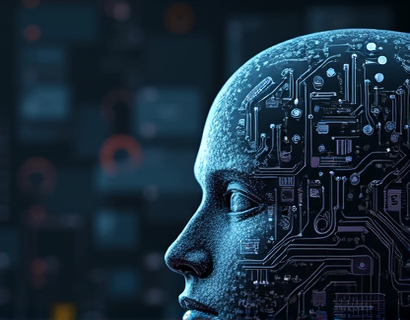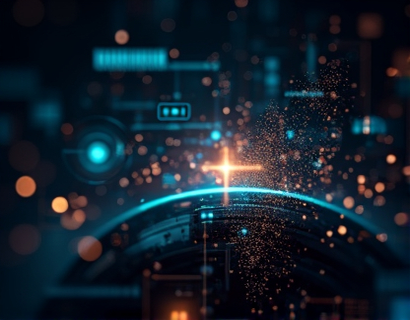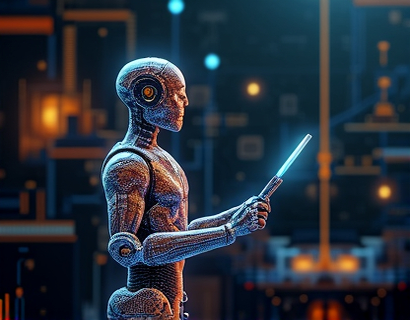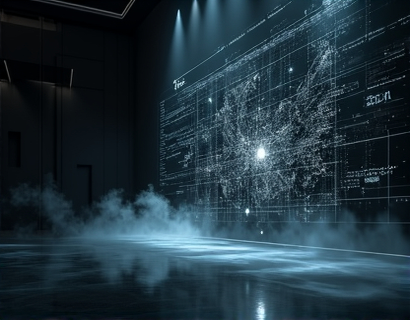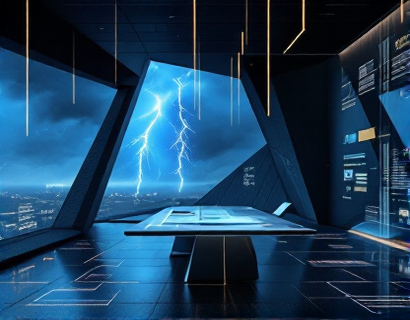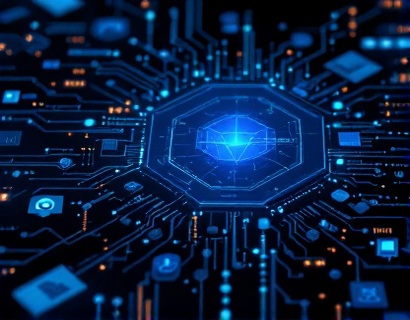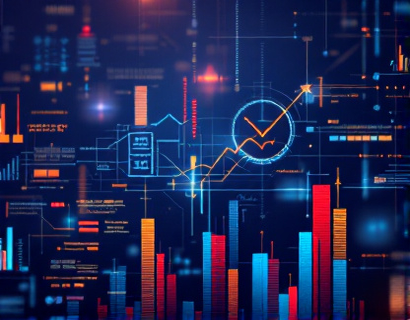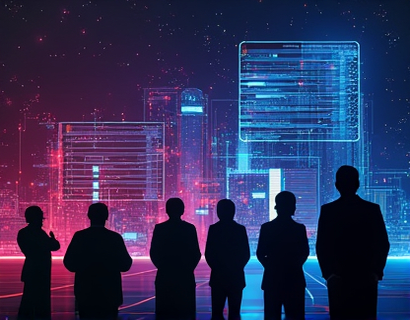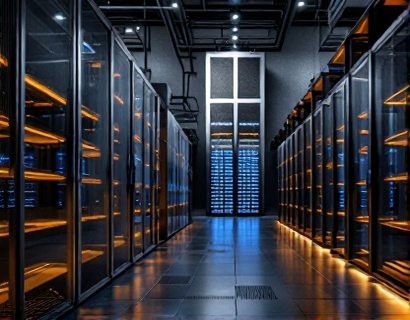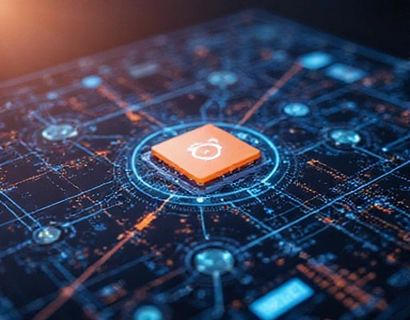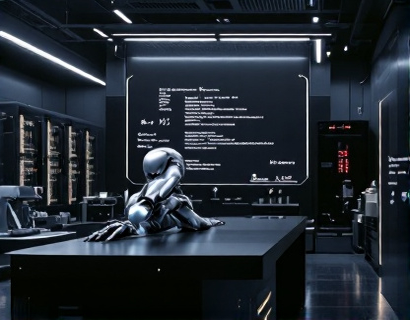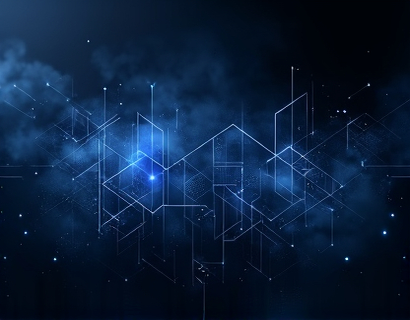Decentralized DAOs: Revolutionizing Web3 Governance Through Community Empowerment and Innovation
In the rapidly evolving landscape of Web3, decentralized autonomous organizations (DAOs) stand as a pivotal force, redefining the norms of governance and community engagement. These entities leverage blockchain technology to create transparent, community-driven models that empower individuals and groups to collaboratively manage digital protocols. This article delves into the transformative impact of DAOs, exploring how they are reshaping the future of Web3 through enhanced collaboration, transparency, and scalability.
The concept of decentralization is not new, but its application through DAOs brings a fresh dimension to governance in the digital realm. Traditional centralized systems often suffer from bottlenecks, lack of transparency, and limited community involvement. DAOs address these issues by distributing control across a network of participants, ensuring that decision-making processes are open and inclusive. This shift not only fosters a sense of ownership among community members but also drives innovation by tapping into diverse perspectives and expertise.
One of the key strengths of DAOs is their ability to enhance collaboration among community members. By removing hierarchical structures, DAOs create an environment where everyone has a voice. This democratization of governance encourages active participation and fosters a culture of collective problem-solving. For instance, community members can propose, discuss, and vote on proposals related to protocol upgrades, resource allocation, and strategic direction. This process not only ensures that decisions reflect the collective will but also builds trust and cohesion within the community.
Transparency is another cornerstone of DAOs. All transactions, proposals, and discussions are recorded on the blockchain, providing an immutable and verifiable history. This level of transparency is crucial in building trust among participants and stakeholders. It eliminates the risk of manipulation or hidden agendas, ensuring that all actions are accountable and traceable. This openness is particularly important in the Web3 ecosystem, where trust is a fundamental requirement for the adoption and success of decentralized applications and protocols.
Scalability is yet another area where DAOs excel. Traditional governance models often struggle to scale due to their centralized nature, which can lead to slow decision-making and limited adaptability. DAOs, on the other hand, are designed to scale organically with the growth of the community. As more members join and contribute, the collective intelligence and resources available to the DAO increase, enabling it to handle more complex tasks and manage larger protocols. This scalability is essential for the evolving Web3 landscape, where the demand for robust and flexible governance structures is paramount.
The impact of DAOs on digital protocols is profound. By placing governance in the hands of the community, DAOs ensure that protocols evolve in alignment with the needs and desires of their users. This user-centric approach leads to more relevant and effective solutions, driving innovation and adoption. For example, decentralized finance (DeFi) protocols managed by DAOs can introduce new features and improvements based on community feedback, enhancing user experience and security. This continuous iteration and improvement cycle is a significant advantage over centralized systems, which may lag behind in responding to user needs.
Moreover, DAOs facilitate the creation of more resilient and fault-tolerant systems. In a decentralized governance model, there is no single point of failure. Even if some participants are compromised or inactive, the system can continue to function smoothly. This redundancy is crucial for maintaining the integrity and availability of Web3 protocols, which are often critical for financial transactions, data storage, and other essential services.
The role of DAOs in fostering innovation cannot be overstated. By empowering communities to drive decision-making, DAOs unlock a wealth of creative potential. Community members, motivated by a stake in the protocol's success, are more likely to contribute ideas, develop new tools, and implement cutting-edge solutions. This grassroots innovation is a powerful driver of progress, leading to breakthroughs that might not occur in more rigid, top-down structures. The decentralized nature of DAOs also encourages experimentation and risk-taking, as failures can be absorbed and learned from collectively.
To illustrate the transformative power of DAOs, consider the example of decentralized governance platforms like SushiSwap. This decentralized exchange (DEX) is governed by a DAO, where token holders can propose and vote on changes to the protocol. This model has enabled SushiSwap to rapidly adapt to market conditions, introduce new features, and maintain a strong community presence. The success of such platforms demonstrates the potential of DAOs to revolutionize how digital protocols are managed and evolved.
However, the adoption of DAOs is not without challenges. One of the primary hurdles is the technical complexity involved in setting up and managing a DAO. Not all communities have the necessary expertise to navigate blockchain technologies and smart contract development. To overcome this, educational resources and community support are essential. Initiatives that provide training and guidance can help demystify the process and make DAOs more accessible to a broader audience.
Another challenge is the need for robust legal and regulatory frameworks to support DAOs. As these organizations operate across borders, they must navigate varying legal environments, ensuring compliance while maintaining their decentralized ethos. Collaboration between DAO developers, legal experts, and policymakers is crucial to create a conducive environment for DAOs to thrive.
Despite these challenges, the future of DAOs looks promising. As blockchain technology matures and more people become familiar with decentralized concepts, the adoption of DAOs is likely to grow. The potential benefits—enhanced collaboration, transparency, and scalability—make DAOs an attractive solution for managing Web3 protocols. Communities that embrace this model are well-positioned to lead the charge in shaping a more interconnected and future-proof digital landscape.
In conclusion, decentralized DAOs are revolutionizing Web3 governance by empowering communities and driving innovation. Through enhanced collaboration, transparency, and scalability, DAOs offer a compelling alternative to traditional governance models. As more individuals and organizations recognize the value of community-driven approaches, the adoption of DAOs will continue to expand, paving the way for a decentralized future where power is distributed and innovation knows no bounds.



